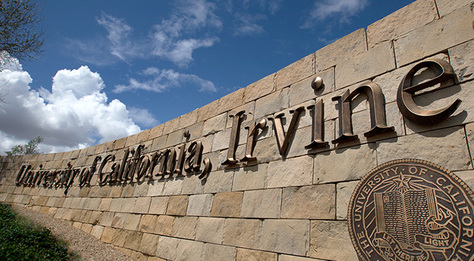Conference on Conflict and Development: Perspectives from History, Economics, and PoliticsFebruary 19-21, 2016
UC Irvine, Social and Behavioral Sciences Gateway, Room 1517 Irvine, CA Conflict is endemic in the world. Its financial toll is enormous to say nothing of the human costs. Some economists have estimated that the total costs of conflict and enforcement of contracts represent at least 10% of national income. Historical studies have shown that regions plagued by severe conflict in the past are often more poor today. One view is that conflict breeds political and social institutions that stifle development. However, there is an argument that in Europe war helped to foster the development of strong fiscal states, which subsequently aided in economic development through infrastructure and enforcement of property rights. An historical perspective thus has much to offer in terms of understanding the effects of conflict. The tools of political science also illuminate how the state is organized and responds to pressures brought by conflict. This conference aims bring together scholars from several disciplines to shed light on conflict and development. This event is sponsored by The All UC economic History Group, the Center for Global Peace and Conflict Studies, and the University of California Irvine. For more information please email Lauren Thomas. |
Workshop Program |
Friday, February 19
1:00 - 1:10 pm -- Introductions 1:10 - 2:40 pm -- Session 1 Paper 1: The Economic Legacy of Warfare: Evidence from Urban Europe Mark Dincecco (University of Michigan) Paper 2: Economic development in a limited access order: North-western Europe, c. 1000-1700 Erik Ansink (University of Utrecht) 2:40 - 3:00 pm -- Coffee break 3:00 - 4:30 pm -- Session 2 Paper 3: Conflict and Social Structure Jim Robinson (University of Chicago) Paper 4: Conflict and Trade Kevin O’Rourke (University of Oxford) 5:00 - 8:00 pm -- Reception in the Library Room at the University Club followed by Plenary by Phil Hoffman, Caltech, Why did Europe Conquer the World? Saturday, February 20 9:00 - 10:30 am -- Session 4 Paper 5: Development and Segregation Nikolaus Wolf (Humboldt Universität zu Berlin) Paper 6: Religion, Polarization, and Conflict Metin Cosgel (University of Connecticut) 10:30 - 11:00 am -- Coffee Break 11:00 am - 12:30 pm -- Session 5 Paper 7 : Collective Action and Representation in Autocracies: Evidence from Russia's Great Reforms Steve Nafziger (Williams College) Paper 8: Legacies of Violence: Armed Conflict and Ruling Party Durability in Authoritarian Regimes Anne Meng (UC Berkeley) 12:30 - 2:00 pm -- Lunch Paper 9: State Formation and Social Conflict: The Political Economy of the Swiss Old Confederacy Jakob Schneebacher (Yale University) Paper 10: The Legacy of War Dynamics on Fiscal Capacity Building Luz Marina Arias Lopez Montes (Centro de Investigación y Docencia Económicas CIDE) 3:30pm - 4:00 pm -- Coffee break 4:00 - 5:30 pm -- Session 7 Paper 11: Paribas and European Integration: A Case Study of the Bank’s Responses to Conflict and its Contributions to Postwar European Union Development Grace Ballor (UCLA) Paper 12: Guns, Lawyers, and Money: Economic Consequences of Costly Conflict Stergios Skaperdas (UC Irvine) 7:00 pm -- Dinner, Location TBD Sunday, February 21 8:30 - 10:00 -- Session 8 Paper 13: Not an Ordinary Bank but a Great Engine of State: The Bank of England, the Financial Revolution, and the Formation of the British State, 1694-1821 Nuno Palma (EUI and University of Groningen) Paper 14: “Government Shutdown": Empirical Evidence from Restoration England Kara Dimitruk (UC Irvine) 10:00- 10:30 am -- Coffee break 10:30 am - 12:00 pm -- Session 9 Paper 15: Economic Shocks and Varieties of Conflict: Global Prices, Real Income and Local Violence in Africa Eoin McGuirk (Brown University) Paper 16: Chasing the Key Player: a Network Approach to Myanmar Civil War Andrea Di Miceli (UCLA) Conference closes. |


